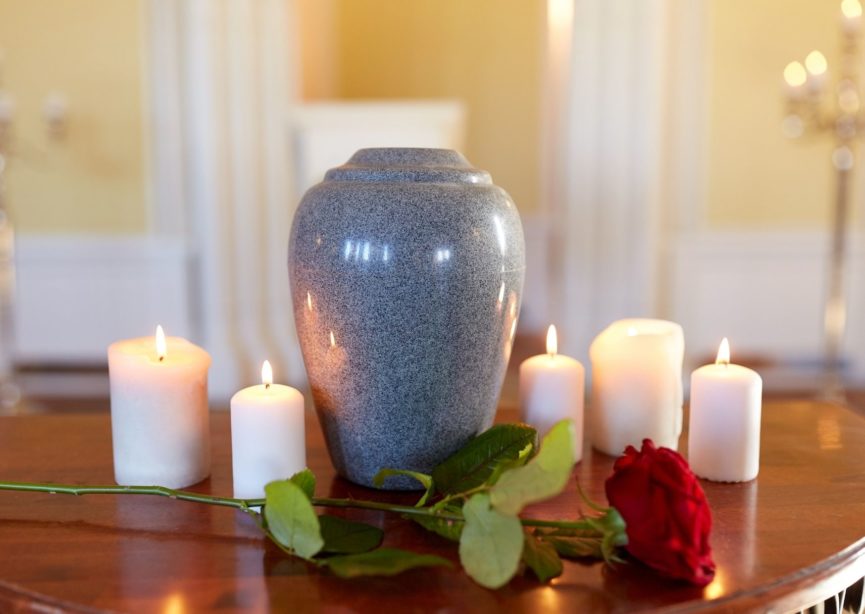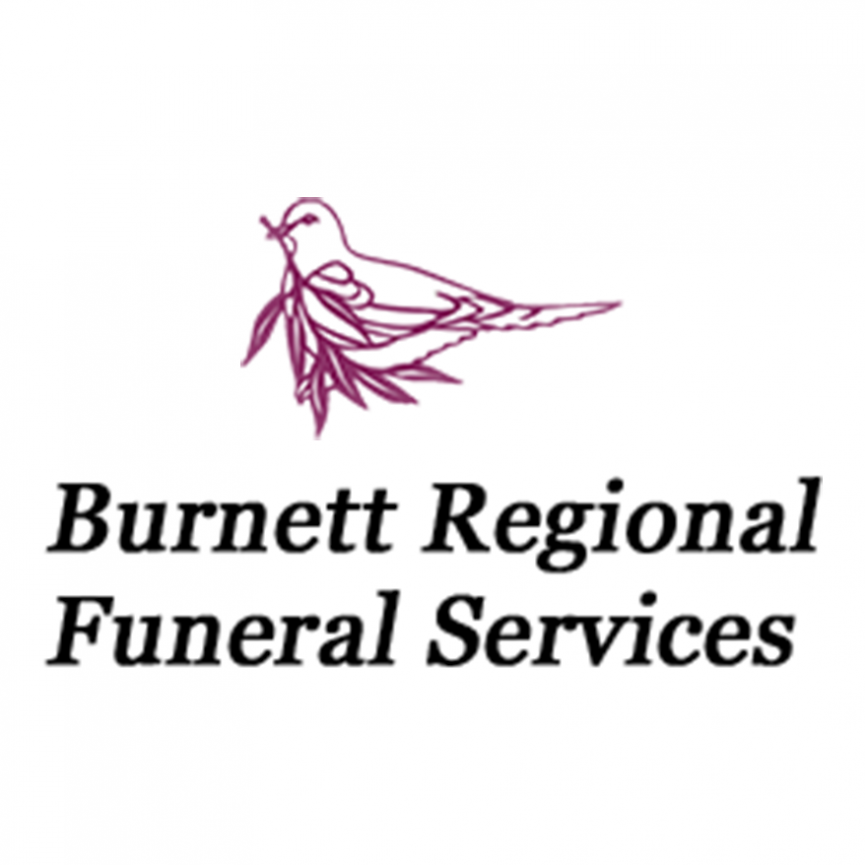Being in a position to give a eulogy about a loved one you have lost is a huge responsibility, but it’s also a huge honour. If you have to write a eulogy but you don’t know where or how to start, then read on! This article will walk you through how to write a moving eulogy, things to avoid and how to get through delivering your eulogy at the funeral. What is a eulogy? A eulogy is a spoken tribute to someone who has passed away and is given at their funeral or memorial service. There are no set rules regarding who should give the eulogy at a funeral. It can be given by a spouse, son or daughter, grandchild, sibling or even a friend. As for who decides who gives the eulogy, the deceased may have decided who they want to do it before they passed, you may be asked by a family member, or it could fall to you by default. Sometimes people also volunteer to give a eulogy. What makes a good eulogy? The most important thing to remember when writing a eulogy is that it should capture the essence of the person it is about. It is a final farewell to the deceased person, and a celebration of their life. A good eulogy will make feel like the person is there in the room with you, bringing the person to life in the minds of the congregation. It should be heartfelt, meaningful and honest. The average eulogy is 3 – 5 minutes long, and written with both the deceased person and the audience in mind. Big words and grand statements have no place in a eulogy; keep the tone conversational and use simple, easy to understand language. How do I start writing a eulogy? Writing a eulogy might not be the easiest of tasks, but it is an important part of preparing for the funeral that should not be left until the last minute. Start off with a brainstorming session and think about the person you will be speaking about. What kind of person where they? What were they known for? Who is their family and who are they survived by? What were their notable achievements? Give specific examples of what your loved one was known for. For example, if they were known for their sense of humour, you might like to include an anecdote of something that demonstrates this, such as a particularly funny April Fool’s joke! Decide on the tone of the eulogy you want to deliver. Remember, a eulogy doesn’t have to be sad and mournful. Depending on the person it is celebrating, it could have elements of humour or be uplifting and inspiring as well as being sad. Now it’s time to start writing. If the officiant does not introduce you, ensure you start by introducing yourself and explain your link to the deceased person. Remember, a eulogy does not have to follow the chronological order of your loved ones life. You … Read More
Pre-planning your own funeral
This week on our blog, we’re talking about pre-planning your own funeral. Pre-arranged funerals have increased in popularity over recent years. In this article we will explore the benefits of pre-planning your own funeral, how we can help and some of the things you will need to consider before getting started. Why should you plan your own funeral? Planning your own funeral has plenty of advantages. Perhaps the most obvious advantage of pre planning your own funeral is that doing so means you can rest assured that your life will be celebrated in the way you wish. When you pre-plan your funeral, the choices are yours – you get to choose whether you are cremated or buried, the type of ceremony or service you are remembered with, you can choose your own coffin and even the songs and dress code for your final farewell. By preplanning your funeral, you get to be remembered the way you wish to be. Another reason that pre-paid and pre-arranged funerals are worthy of consideration is that doing so spares those you love of the angst and stress of trying to plan a funeral at what is likely to be one of the worst times of their lives. You are also sparing them of the financial burden that inevitably comes with arranging a funeral. Because of this, pre-arranging your funeral is a loving and thoughtful gift you can leave for your family when you pass away. Having a pre-arranged funeral also means that you have the opportunity to change your mind. Perhaps in 10 years time you decide you want everyone to wear bright colours to your final farewell and that donations should be made to a specific charity in lieu of flowers – all you need to do is get in touch and let us know that you would like some changes made. We are happy to help! Is it weird to plan your own funeral? Of course not! There is nothing weird about easing the burden of planning your funeral on the people you love most. Planning your own funeral helps to ease possible arguments over money and funeral arrangements, and as we have said, it means your life is celebrated your way. How do you pre plan your own funeral? There is a lot to think about when it comes to planning your own funeral, and the first vital step in the process is deciding what your end of life wishes are. We have already discussed this on our blog, so if you haven’t already, head on over to last week’s blog post and have a read. You will also find handy free downloads including our new My Final Wishes planner, a different planner from the Australian Funeral Directors Association, and another lovely print out to record your life story. Once you have established what your end of life wishes are, the next step is to get in touch with us. Burnett Regional Funeral Services offers pre-arranged pre-paid funerals in conjunction with … Read More
Talking about your final wishes
Whether we like it or not, one of the few certainties of life is death. Discussions around death can be uncomfortable, and talking to your friends and family about your final wishes can be a difficult and emotional conversation for all involved It doesn’t matter whether you’re healthy or suffering from a terminal illness – none of us know when our time is up. For that reason, it is important to prioritise discussing your final wishes with your family. In fact, documenting your final wishes and ensuring your loved ones are aware of those wishes is a loving gift you can leave behind when you pass away. Decide what your final wishes are You need to have a clear idea of what your final wishes are before you open the conversation with friends and family. There are many factors to take into consideration. Would you like a religious funeral in a church, or a more casual memorial? Would you like to be buried or cremated? There are many questions to take into consideration, and our free printable final wishes template can help you to map out your wishes in an easy to complete and read format. Use the completed worksheets during your discussion with your family and ensure your next of kin and at least one other person has a copy and knows where the original of both your planner and your final will and testament is stored. Taking that first step and initiating any conversation around death is difficult, but don’t worry, we’re here to help. Starting the conversation around final wishes and death One of the most important parts of discussing your final wishes with your family is how you open the conversation. We would suggest making your intentions of opening the door to this discussion clear to your friends and family – it’s best not to blindside them. Decide who you would like to be involved in the conversation, and set a time and place for this to take place. Where would those involved in the discussion feel most at ease? For some, this might mean arranging for your discussion to take place on neutral ground. For others, a meeting around the kitchen table might be the most comfortable. Ensuring everyone feels as comfortable as possible – including yourself – is important. Express to those you wish to include how important it is to you to have this conversation, as this makes it more likely for them to willingly participate. At first, you may find it easier to limit the number of people involved in the conversation and then include others later. It is important that everyone who will be involved in making arrangements after you pass away is included in the conversation at some point, as this can help to avoid conflict when the time comes. You might even like to practice the conversation around your final wishes with a friend before discussing it with your family. Remember, you don’t have to discuss everything in one … Read More
What is direct cremation?
Unlike traditional funeral services involving a church service and procession to the graveside, a direct cremation is a cremation without a funeral. Also known as unattended cremations or no service cremations, Covid-19 has caused direct cremations to rise sharply in popularity over the past year. Direct cremations are a budget friendly option for cremating a loved one who has passed away, and while you may worry you are disrepecting your loved one, you need not, as a direct cremation allows for you to plan a memorial after the cremation has taken place. How much does a direct cremation cost? The good news is that direct cremations offer an affordable alternative to traditional funerals. Often a traditional funeral can be a costly undertaking, however the cost of a direct cremation is limited to transportation coss, crematorium fees, registration of death and other paperwork and the return of the ashes to the next of kin. Traditional funerals are much more expensive because the cost includes the funeral director’s time in arranging the funeral, mortuary care fees, transport, church fees, catering and multiple transportations of the body. What is the benefit of direct cremation? There are many benefits of direct cremation. Although many people still prefer to take the path of a traditional funeral, direct cremations are a more economical option, and they eliminate the stress of planning a funeral during times of deep distress and grief. Many people choose to honour their passed love one by planning a memorial to take place after the direct cremation, rather than dealing with the extreme emotional stress of planning a funeral service within a matter of days following the death. Planning a memorial after a direct cremation A memorial following a direct cremation allows you a greater degree of flexibility and creativity in how you choose to say goodbye to your loved one – you may decide to choose a location that was special to the deceased person, include more personal touches than a traditional funeral would allow for or you may include an ashes scattering ceremony as part of the post cremation memorial service. We will share some ideas for planning a memorial after direct cremation on our blog and our Facebook page in the coming weeks. Final thoughts… We hope this article about direct cremations has answered some of the questions you may have around what direct cremations are, how much they cost and what some of the benefits are. Please check out our services page or contact us for help in arranging a direct cremation in Gayndah, Biggenden, Mundubbera, Eidsvold, Monto and anywhere else in the North Burnett region or the surrounding areas.
Advance care plans – what are they, and do I need one?
Last week was Advance Care Planning Week, a week dedicated to broadening understanding of what advance care planning is, promoting the benefits of advance care plans and helping Australians start their own advance care plan. It’s a great time to open up the conversation around advance care plans, if you need one and how to make one.
A Guide to Funeral Flowers and Arrangements
These wonderful flowers have been designed and presented by Sue Meredith from Flowers by Susan, Gayndah. Simply stunning! Sending flowers to a funeral or to the family after a loved one has died is a long-running tradition in Australia and an appropriate way to pass on your condolences. Choosing the right funeral flower arrangement can be a little difficult. If possible, it is best to ask the person who is organising the funeral beforehand whether or not there is a colour scheme. Wreaths These are the flower tributes that are most typically associated with funerals. They are circular in shape and are suitable for sending directly to a funeral whether you are family or a friend. Funeral crosses Funeral crosses also have strong connotations with funerals. However, they are traditionally sent by family or close friends. They are available in a range of colours and styles from most florists. Posies The posy tribute is suitable for any mourner to send to either the funeral, or to the home of the person who has passed away. It is circular so that the flowers can be viewed easily from all angles. They can be made in modern or traditional styles. Tied sheaf A tied sheaf looks very similar to a normal flower bouquet. The plastic that would usually surround the bouquet has been removed and it is tied instead. It is suitable for any mourner to send a tied sheaf. Funeral spray Funeral sprays are commonly associated with sympathy. This would be an ideal tribute for a friend and their family. Coffin spray A coffin spray is chosen by the person arranging the funeral or close family members. It would generally be seen as inappropriate for anyone else to send one as they traditionally adorn the coffin or casket.
Celebrating Life
Celebrating Life We want to take this opportunity to remind you of our motto Where Caring Comes First. We all should wake up every day and be thankful to see the sun shining in the sky. No matter what is going on in your life, you must celebrate and find beauty in each moment. It’s a miracle to be living, breathing and taking in every minute of every day. Treat your life as the wonder it is. Live in every moment, don’t take anything for granted and never have regrets. You only have one shot to live life to the fullest. Don’t waste it on the trivial. Because we care about you and your family, we want to help you celebrate life by sharing the following inspirational quotes: “Life is what you celebrate. All of it. Even its end.” – Joanne Harris “Don’t cry because it’s over, smile because it happened.” – Dr. Seuss “One day your life will flash before your eyes. Make sure it’s worth watching.” – Gerard Way “There is no security in this life. There is only opportunity.” – Douglas MacAurthur “Life is full of beauty. Notice it. Notice the bumblebee, the small child, and the smiling faces. Smell the rain, and feel the wind. Live your life to the fullest potential, and fight for your dreams.” – Ashley Smith “The best way to prepare for life is to begin to live.” – Elbert Hubbard “Believe in yourselves. Dream. Try. Do good.” – Mr. Feeny of Boy Meets World “If we are ever to enjoy life, now is the time, not tomorrow or next year…Today should always be our most wonderful day.” – Thomas Dreier. “A day without a laugh is a wasted day.” – Charles Chaplin “Throw your hands up in the air and celebrate life.” – Steven Tyler “There is always, always, always something to be thankful for.” – Unknown “The more you praise and celebrate your life, the more there is in life to celebrate.” – Oprah Winfrey Use these quotes to celebrate each day!
Top 5 Reasons to Pre-plan Your Funeral
Top 5 Reasons to Pre-plan Your Funeral If any of the following statements describes you, then you are probably someone who will appreciate the benefits of preplanning your funeral. You want to ease the burden on your family. If your wishes are unknown when you die, they will be faced with making difficult decisions at a trying time. Will they know if you wish to be buried or cremated? Will they agree on a coffin? Will they agree on how much to spend? Confusion and disagreements are common occurrences when there is no plan to follow. You can avoid this by leaving behind a plan. You want to assume the financial responsibility for your funeral. Planning ahead enables you to make financial arrangements to cover your funeral costs. Even if you are leaving behind sufficient money, will your survivors be able to access it? You want your family to have the benefit of a meaningful funeral. A funeral is an important event for a grieving family. Psychologically, it provides a sense of closure and enables the family to begin the healing process. Families benefit emotionally and socially by honouring the lives of their loved ones with a fitting ceremony and by giving them a proper send off. It is difficult to make the funeral the best it can be when planning it in a short time. You want your final wishes to be followed. If you have specific preferences for the disposition of your remains and the nature of your funeral services, you can clearly express them in your funeral plan. You may have a preference for burial or cremation, or the music and readings at your funeral. Or you may not want a funeral ceremony. Whatever your wishes, they need to be set forth in your funeral plan. You want to be self-reliant and have your affairs in order at the end of your life. Taking care of your funeral arrangements is a thoughtful and caring thing to do for your family. It is comforting to know that you have done all you can do to ease their burden. Contact us today to help you pre-plan your funeral.
Remembering Loved Ones at Christmas
Looking for unique and inspiring ideas for remembering loved ones at Christmas? Whether you have recently suffered the loss of a loved one or you are simply missing his or her presence, there are special ways to include him or with special ‘in memory’ at Christmas decorations and gifts. 1. Purchase or make your own personalized ‘in memory’ at Christmas ornament with your loved one’s name or photo on it to commemorate your loved one. Gather the family together and share memories of your loved one while you hang the ornament on the Christmas tree. 2. Tie a beautiful ribbon around the trunk of your Christmas tree in your loved one’s favourite colour. 3. Remembering loved ones at Christmas is simple to do by hanging stockings with their names embroidered on them. On Christmas Eve, have your family members fill the stockings with cards and letters to or about your loved ones. You can all take turns reading the memories out loud on Christmas Day. This is sure to become a beautiful and meaningful family tradition. 4. Make an angel tree topper in memory of your loved one to top your Christmas tree. You could make the angel’s clothes or wings out of your loved one’s clothing. 5. Dedicate a small Christmas tree to your loved one and decorate it with photos, notes, and special ‘in memory’ at Christmas ornaments. 6. Make a memory wreath dedicated to your loved one and hang it on your front door. Decorate the memory wreath with ribbons in your loved one’s favourite colours, sentimental objects and photographs. 7. Buy a special candle and dedicate it to your loved one’s memory. 8. If you enjoy doing crafts, try making a memory candle with a treasured photograph of your loved one. 9. At your place of worship, light candles in your loved one’s name or remember him or her in prayer. 10. Set up a memorial table in your home for remembering loved ones. When friends and family come over for Christmas dinner, ask them to bring a small memento to place on the memory table that reminds them of someone special that has passed away. 11. Buy your loved one’s favourite holiday flowers or plants to display in your home over Christmas. For an extra special touch, make a homemade plant marker with your loved one’s name on it. 12. Find a poem that reminds you of your loved one, or compose an original poem. Use your best penmanship to write the poem, frame the poem and displayed it in your home over the holiday season.
Organ Donations
Facts and statistics One organ and tissue donor can transform the lives of many people. Australia is a world leader for successful transplants. Australia’s donation rate has more than doubled in recent years. Did you know? Around 1,400 Australians are currently waitlisted for a transplant. A further 11,000 are on dialysis, many of whom would benefit from a kidney transplant. In 2017, 1,675 lives were transformed by 510 deceased and 273 living organ donors and their families. In 2017, more than 9,600 Australians benefited from eye and tissue donation. The majority of Australians (69%) are willing to donate their organs and/or tissue when they die. In Australia, 90% of families say yes to donation when their loved one is a registered donor. This compares to the national consent rate of 59%. If our national consent rate reaches 70%, Australia would be in the top 10 performing countries. One in three Australians are registered donors despite the majority (69%) believing that registering is important. While the majority of Australians (71%) think it’s important to talk a with their family/partner, only half (51%) of Australians have discussed whether they want to be a donor. Of the 36% of Australians who feel confident they know if their loved ones are willing to be a donor, 93% say they would uphold their wishes. Would you like to know more? https://donatelife.gov.au/about-donation/get-facts/facts-and-statistics







